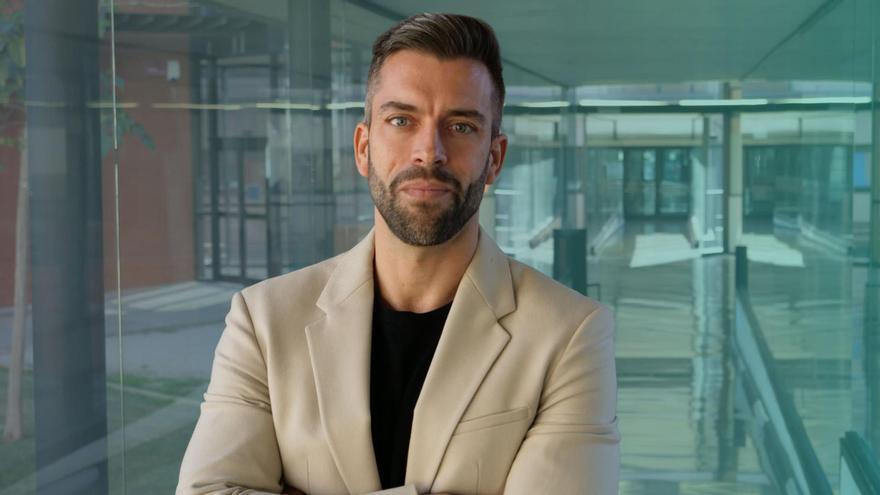The investigator Jose Jaime Baldoví Gashan (Chativa, 1986) He is one of the new academics of the Spanish Academy of Youth, an international committee covering different fields of knowledge, in a range that extends from exact sciences to humanities, with absolute parity and geographical representation. The entity was founded in 2019 to promote science as a career choice among young people, and research and innovation as drivers of development.
Baldovi —Distinguished Researcher in the Gen-T Plan and Director of the 2D Smart Materials Group at the Institute of Molecular Sciences (ICMol) of the University of Valencia– He is one of two new scientists to enter the Academy, along with four researchers, out of a total of 142 candidates.
For the scientist, the news announced at the end of June came as “a complete surprise and a great incentive to continue our work. The Academy represents science from many perspectives, with academics from different fields, and I want to contribute to their goals and projects, because I share their values.” Regarding the work you will do, he explains the importance of communication. “There are different working groups, but in my case I am very interested in disseminating science, as well as contributing to the professional careers of young researchers and scientists,” he adds.
“Communicating science is essential, because society is the taxpayer. Medicine, new technologies, the economy… everything is linked to science and is directly affected by it.” This is something that is very important for society to see and support, which is why scientists should make an effort to disseminate it in the most accessible ways possible for the public. “Science is fundamental and affects many areas of life,” he says.
Regarding the role of young people in science, Baldoví points out that it is vital. “We young people are an incentive for those who are already there and we also motivate new generations to do science, it is a very important social work, and from here people can reach the top,” says the one who is already a reference for future scientists.
Baldoví is a distinguished researcher at GenT, and has returned from abroad with a plant-based plan to reverse the brain drain. He says he was able to return from Hamburg, Germany, “under unprecedented circumstances.” He now collaborates on teaching assignments and as Researcher in the Department of Ultraviolet Chemistry and Physics, He argues that his dual profile allows him to “transmit passion” in teaching.
In his group, he currently supervises one Marie Sklodowska-Curie postdoctoral researcher, two postdoctoral researchers, five PhD theses and two undergraduate students. He has published more than 65 articles in international journals, one book chapter, three popular science articles, as well as 30 lectures at international conferences and eight lectures at symposia.
Magnonics and information
His research focuses on: Development of theoretical and computational frameworks for the chemical design of molecular and two-dimensional smart devices for information technologiesThis work integrates physics, chemistry, and materials science to explore emerging applications in areas such as magnetism, spintronics, quantum computing, and sensors. At magnonics, they are working with magnets to find a faster way for digital devices to transmit information.
What they’re trying to achieve is “like when we’re in a football stadium and the crowd is waving, there’s movement and speed but without people having to move.”
Regarding the situation of the sector, he points out that “as a country, in Spain, we still contribute a low percentage of GDP compared to other countries, there is a need for science to have more resources, but that does not mean that we should use instability to discourage us.” I have always lived science as a passion, to reach the highest level with effort, and things are improving.”

“Social media evangelist. Student. Reader. Troublemaker. Typical introvert.”







More Stories
“Those who go to museums but do not see an oak tree in the countryside should blush.”
Michoacana Science and Engineering Fair 2024, When the Call Ends – El Sol de Zamora
Dr. Miguel Kiwi, winner of the National Science Award, gives his opinion on nanoscience in Chile